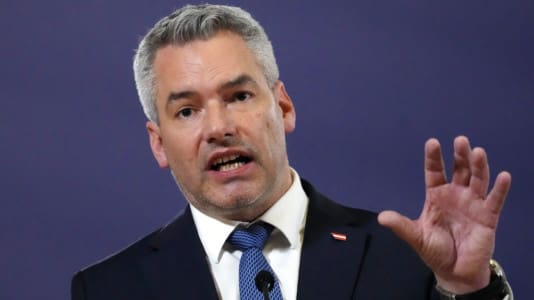The European Union’s sanctions against Russia have caused a loss of 4,000 billion forints (€9.75 billion) to the Hungarian budget, yet have not achieved their goal of crippling the Russian economy, Hungarian Deputy Prime Minister Zsolt Semjén said on Wednesday.
During a tour in support of the government’s national consultation on sanctions, Semjén said the Russo-Ukrainian war cannot solely be blamed for the dramatic rise in energy prices, as Brussels’ response to the war is what really tipped the scales. Semjén pointed out that the war caused gas prices to go up to $100, but when Brussels “started to threaten with sanctions,” they almost immediately rose to between $200 and $350.
[pp id=56578]
He added that it seems as though Russia has not been pacified by the sanctions, as they sell their oil to China and India without any problems, and selling less gas does not reduce Russia’s revenues as higher prices have doubled their profits.
“In order to protect the people of Europe, we need to rethink our sanctions policy, and Hungary will not support anything that endangers the energy supply of the Hungarian people and the Hungarian economy,” said the deputy prime minister.
He is not the only Hungarian official criticizing Europe’s sanctions policy. Just this week, Tamás Menczer, the minister of state for bilateral relations of the Hungarian Ministry of Foreign Affairs and Trade, said that Europeans are far more harmed by sanctions than Russians.
Menczer said that in the first nine months of last year, the share of gas and oil revenues in the Russian budget was 35 percent; for 2022, this figure has increased to 43 percent, meaning Russia is still earning substantial amounts of money by selling energy.
“So Russia is generating record revenues, while we in Europe are paying a sanction surcharge for energy and suffering sanction inflation,” he said.
Hungary’s deputy prime minister, Semjén, said that Hungary cannot support sanctions which are bad and harmful for all citizens of the European Union.
“At the same time, the government feels obliged to help the Hungarian people in the difficult situation that has arisen,” he said, adding that this is why the government introduced price caps and an interest rate freeze, launched the factory bail-out program, and is providing a monthly subsidy of 181,000 forints (€441) for every Hungarian family up to the average consumption level in order to reduce utility bills.
Semjén said that Hungary remains on the side of peace and that the possible escalation of the Russo-Ukrainian war threatens the whole world. He continued by saying that Russo-American negotiations, a ceasefire, and the launch of peace talks are needed as soon as possible, and that if this happens, Brussels will be able to provide the EU with a minimum of €18.5 billion per year for the Hungarian people.





